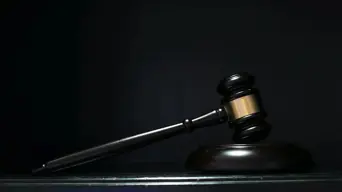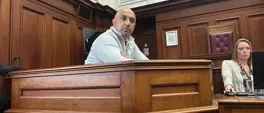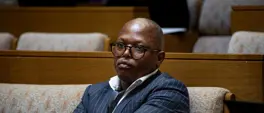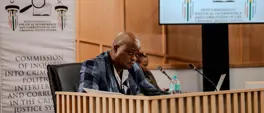Call for legal reform as convicted teen killer granted anonymity
Sara-Jayne Makwala King
21 October 2025 | 10:27Activists are pushing for changes to South Africa’s Child Justice Act, after the 17-year-old who murdered Deveney Nel received a 25-year sentence but remains shielded from being named.

Picture: Pixabay.com
Children's rights activists are calling for legal reforms which would scrap certain protections afforded to those who commit violent crimes while under the age of 18.
It comes as 16-year-old Deveney Nel's killer, who was 17 years old at the time of his arrest, entered a plea deal and was sentenced last week to 25 years behind bars for her murder.
The schoolgirl's body was discovered on 14 August last year in a locked school storeroom at Overberg High School. She had been stabbed to death.
The Child Justice Act governs how children (those under 18) are dealt with in the criminal justice system.
It emphasises restorative justice, rehabilitation, and reintegration into society, rather than punishment as its main objectives.
The Act prohibits the identification of a child offender, a legal protection which can extend into adulthood unless a court orders otherwise and one that Nel's killer, now a convicted murderer, is being afforded.
Dr Marcel Londt, former head of the Department of Social Work at the University of Western Cape, says in cases ike this, the law is designed to consider the best interests of all involved.
"So, yes, he was a minor, but there are people who want to lock them [violent youthful offenders] up and throw the key away, but these people are going to come back into society."
Londt says there is an obligation to do the right thing. "Our youth are in crisis, in conflict, because of systemic issues," she says.
"In principle, I would not object to his identity being protected," she adds.
The National Prosecuting Authority (NPA) has welcomed the 25-year prison sentence handed down to the teenager.
Following his arrest last year, it emerged that a psychiatrist who once assessed him had warned that he was high-risk.
Five years ago, he was accused of the rape of a young girl.
"The people who managed that initial allegation had a duty to inform the school," says Londt.
Ultimately, says Londt, there are bigger issues at play than whetherthe teenager ought to be named, namely rehabilitation.
"What are we doing to stop these kids from waging their violence on others? These kids are out of control."
To listen to Londt in conversation with CapeTalk's Lester Kiewit, use the audio player below.
Get the whole picture 💡
Take a look at the topic timeline for all related articles.
Trending News
More in Local

21 November 2025 05:37
Modack claims Kilian was part of conspiracy against him involving Lifman, Naude

21 November 2025 05:16
Thousands expected to gather at Sea Point Promenade for G20 women’s shutdown

21 November 2025 04:38
SAPS's Molefe Fani admits Matlala’s R360m tender award should’ve been disqualified









